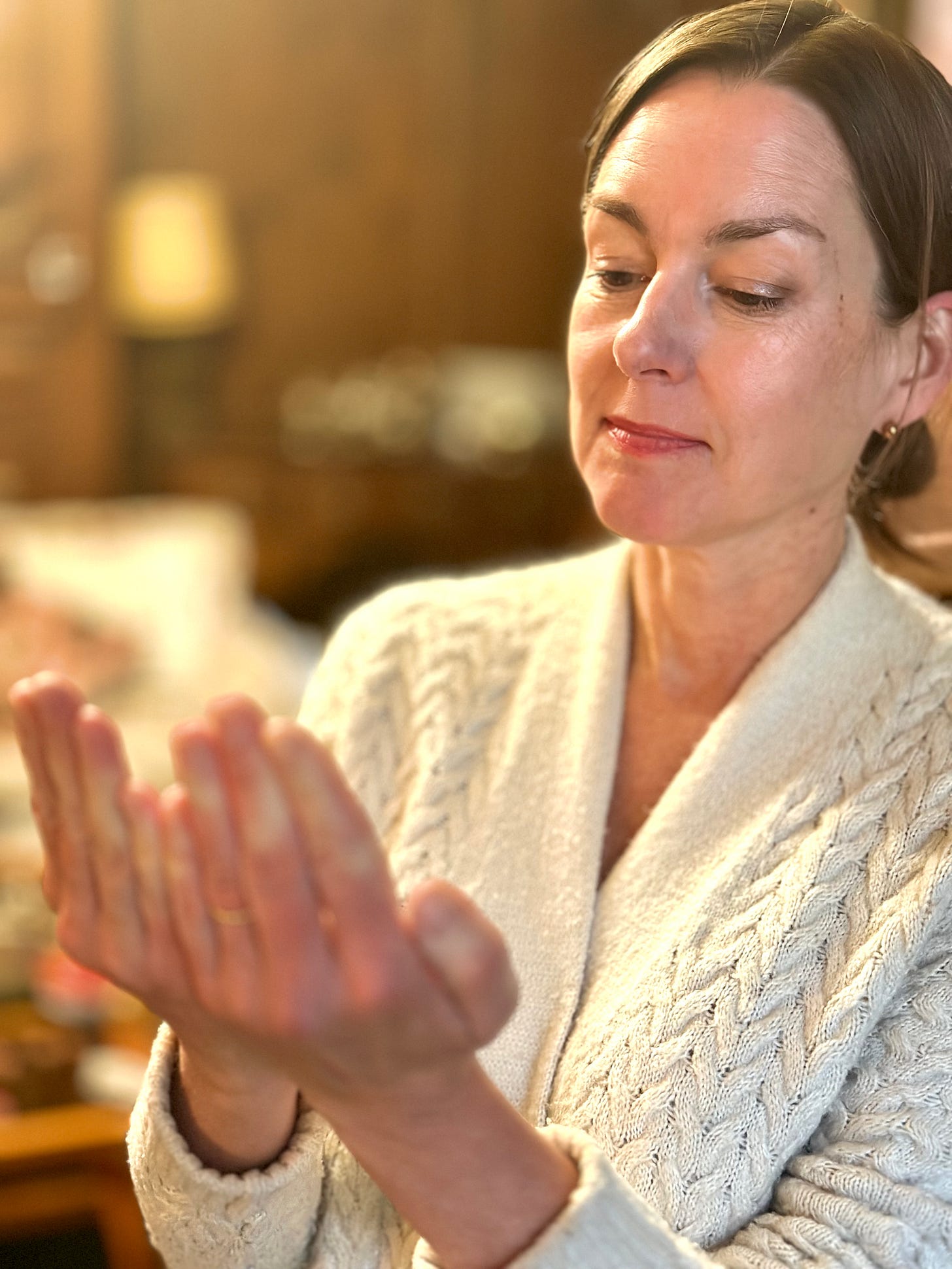For the past month, I’ve been finalizing a talk called “How the Table Can Make You Happy”, which I’ll be giving at the University of Toronto later this week. It’s 45 minutes long, and I was worried about how I’d get it etched into my head. Peter said, “You absolutely have to write out your final version by hand. That’s the only way.” So I did. It took three solid hours and, to my amazement, by the time I was done, I’d found so many typos, lazy words, and awkward turns of phrase that the piece was practically rewritten. Why had I not caught all that before?
Last week, by coincidence, I attended a craft event held at the Toronto studio of ceramicist Susan Collett. Susan builds her pieces by hand, as opposed to throwing them on a wheel. Some of them are huge, and she was explaining her process. Without getting into the technical side of what she shared, the basic premise was: “Begin, and then let the hands figure it out.” That’s when the light went on in my brain about what had happened when I painstakingly wrote out my talk by hand. It was improved because it wasn’t my brain telling my hand what to fix, but the other way around. Hands have an intelligence all their own. Have you ever experienced this?
It had never occurred to me that writing, if you want it to be top quality, should be a manual job, like any other craft. Apparently, Margaret Atwood still writes longhand, only transcribing her work to computer once it’s done. Julia Cameron, author of The Artist’s Way, is famous for an exercise she calls “morning pages.” The idea is to put pen to paper first thing every day and to write three full pages of whatever comes out of your head, however boring or nonsensical. This is not just an exercise for writers; it’s for everyone, because it empties the head of clutter from the day and night before, gets creative juices flowing (often, apparently, leading to breakthroughs), and prepares the brain for the day ahead. Cameron insists that, for morning pages to be effective, they absolutely must be done longhand.
Then, at a lunch the other day, I found myself at a table full of theatre people: a director, a couple of actresses, a music director, a voice coach, a director of movement (a job I’d never heard of before). All of them were talking about the importance of involving not just the hands but the whole body in their work. The voice coach bemoaned the fact that too many people think talking happens only from the neck up. The director of movement explained how her work involves getting actors to develop character and tell their stories beyond words, through things like rhythm, gesture, and stance. Someone at the far end of the table suddenly spread out his arms and, from the base of his solar plexus, a quote from Joe Strummer of The Clash flew up his windpipe and burst into the room. “Don’t forget you’re alive!” he pealed.






